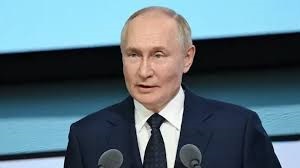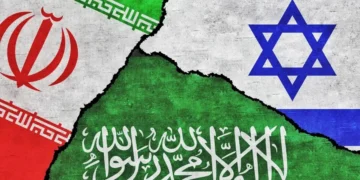Moscow on Friday reiterated its decisive commitment for a joint fight against all types of terrorism without any agreement with New Delhi, while an Indian multi -party parliamentary delegation held extensive discussion on the anti -terrorism fight and informed the Russian side about Operation Sindoor.
A statement issued by Deputy Foreign Minister Andre Rudenco, after meeting with the Parliamentary delegation visited by the Ministry of External Affairs, expressed his desire to increase close cooperation on the regional and global level.
The delegation under the leadership of DMK MP Kanimozhi Karunanidhi is in Russia, to make the diplomatic leadership aware of terrorism arising from Pakistan a month after the Pahalgam attack, in which 26 people were killed.
The statement of the Ministry of External Affairs said, “The decisive commitment for a joint fight without any agreement was confirmed against all forms of terrorism. Regional and globally, mainly the United Nations, BRICS and SCO expressed readiness to increase close cooperation on these issues.” Rudankco hoped to reduce the tension in relations between New Delhi and Islamabad through peaceful diplomatic means.
Rudenko warmly welcomed the delegation in a Smolonscaya square tall building built by Stalin for the Ministry of External Affairs. The Ministry of External Affairs said, “Participants exchanged views on the possibilities of increasing cooperation among legislative bodies and stressed the importance of intensifying the work of the bilateral inter-parliamentary commission.”
The Indian Embassy in Russia said in a post on X that Indian MPs also had a “useful interaction” with former Prime Minister of Russian Union, Mikhail Fradukov, who is the head of the Russian Strategic Studies (RISS). It said, “He discussed the dangers arising out of the current global situation, especially terrorism.”
The delegation made a detailed exchange of ideas at a round table meeting with all-party members of the Russian Union Assembly (Parliament), headed by the chairman of the International Affairs Committee of Duma (Lower House) and Lyonid Slutski of the Liberal-Democratic Party.
A post issued by the Indian Embassy in Russia stated that the delegation also met Andrei Denisov, the first vice -president of the International Affairs Committee and other senators of the Federation Council of the Russian Union.
It further states, “The Russian side condemned the terrorist attack in Pahalgam and said that Russia stands in solidarity with India for the elimination of terrorism in all forms and expressions! Russia and India have a common position in the fight against terrorism. Russia India | Russia India together!”
Earlier, the delegation arrived here late on Thursday night amid Ukrainian drone attacks. Later, the Indian team will interact with local think tanks with top experts from India and South Asia. Before leaving for Slovenia on Saturday, he will address a press conference and interact with local media.
The Indian delegation will also visit Greece, Latvia and Spain as part of the diplomatic contact of the Government of India after Pahalgam, when Prime Minister Narendra Modi has announced a “new general status”, when the New Delhi will consider any of the terrorism actions across the border as a war action against India.
The delegation that Kanimozhi is leading is one of the seven multilateral delegations who have gone to 33 global capitals, who are trying to reach the international community in view of the terrorist attack in Pahalgam, especially in Pahalgam on 22 April, in which 26 people were killed.
Other members of the delegation are SP’s Rajiv Rai, Mian Altaf Ahmed of National Conference, BJP’s Captain Brijesh Chauta, RJD’s Prem Chand Gupta, AAP’s Ashok Kumar Mittal and Ambassador Manjeev S Puri and Javed Ashraf. After the Pahalgam attack, tension between India and Pakistan increased, in which 26 people lost their lives.
India launched accurate attacks on the terrorist infrastructure in Pakistan and Pakistan -occupied Kashmir on the morning of 7 May, after which Pakistan tried to attack Indian military bases on 8, 9 and 10 May. The Indian side strongly responded to the Pakistani action. On May 10, the ground hostility ended with consent to stop military actions after negotiations between the Director General of Military Operations of the two sides.




